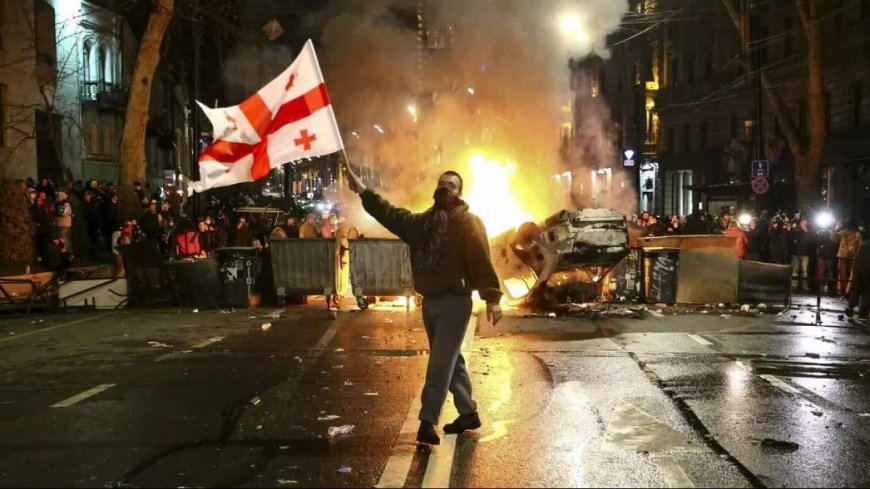Georgia: A Divided Nation Amidst Unrest and Foreign Influence

By: A. Mahdavi
Since the advent of the "color revolutions" in former Soviet Union republics, Georgia has been a crucible of political tension. Today, the country finds itself embroiled in a profound conflict, pitting the aspirations and worldviews of its youth against those of their elders, creating a chasm that threatens to cleave the nation asunder.
The Genesis of Dissent
The Georgian government's pursuit of the Transparency Law has ignited widespread opposition. This legislation mandates foreign media and news agencies to disclose their funding sources and, if exceeding 20%, register with the authorities under the appellation "Beneficiaries of Foreign Power."
Detractors of the law decry its potential to curtail media freedoms in the country. Notably, they perceive the bill as a carbon copy of "Russian law," analogous to those employed by the Kremlin to silence dissent. Conversely, the ruling "Georgian Dream" party maintains that the law is indispensable for promoting transparency, safeguarding the nation's sovereignty, and countering "pseudo-liberal values" espoused by foreign actors.
Secondly, the European Union's granting of candidate status to Georgia has elicited concerns that the country's membership prospects may be jeopardized. This has prompted many young Georgians to take to the streets in protest, perceiving the law as a threat to freedom of expression.
The Broader Context
However, the unrest cannot be fully understood without acknowledging the influence of external forces. The ruling party secured power with a popular mandate, and according to Prime Minister Irakli Kobakhidze, the Transparency Law is essential for transparency. Yet, it is the media influence of the West and its historical efforts to mobilize populations in Georgia and the South Caucasus region that warrants scrutiny.
Western media outlets and political actors are apprehensive of the growing anti-war and pro-Russian sentiment in Ukraine and seek to curtail its ascendancy. Moreover, the West's multifaceted conflict with Russia extends to the political frontiers bordering Russia, seeking to divert its attention from the Ukrainian front and embroil it in multiple engagements.
The allure of Europe
Georgia's younger generation fears the loss of their hallow European dreams, a fear exacerbated by provocative statements from EU officials, like EU President Ursula von der Leyen and EU foreign policy chief Josep Borrell, that the Transparency Law could imperil Georgia's membership hopes. Such positions have fueled internal tensions, leading to attempts by protesters to storm parliament and prevent the law's passage. These impassioned measures, undoubtedly bolstered by Western support, underscore the pivotal role of the media in shaping national discourse. Georgia's potential EU membership, if realized, faces a protracted and arduous path, belying the illusion of an overnight transformation. The Georgian youth's infatuation with Europe, coupled with their waning affinity for Russia, has contributed to the current upheaval.
Conclusion
The unrest in Georgia is a complex tapestry woven from domestic grievances, Western media influence, and geopolitical power struggles. The passage of the Transparency Law has become a flashpoint, pitting the aspirations of the young against the perceived interests of the state. As Georgia navigates this tumultuous period, it must seek a delicate balance between transparency, national sovereignty, and the fundamental freedoms upon which a truly democratic society is built.













































